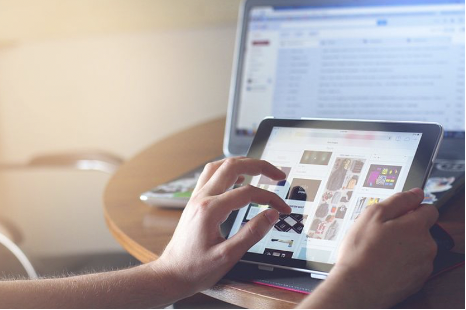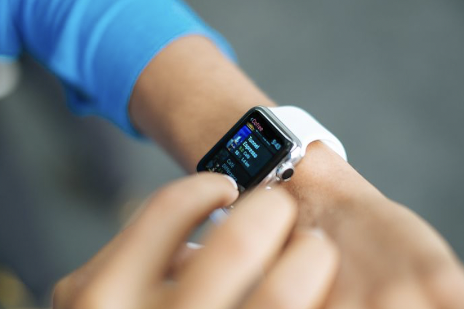Coronavirus Disease 2019
Digital Hygiene During COVID-19
Implementing practices for a healthy digital lifestyle.
Posted May 3, 2021 Reviewed by Devon Frye
Key points
- The coronavirus pandemic has led many people to increase their screen time, with positive and negative results.
- Using digital devices to interact with others can bolster connection during periods of social distancing.
- However, constant exposure to the media and over-use of digital devices can have detrimental effects on both our physical and mental health.
- Practicing "digital hygiene" can help bolster our psychological and physical health, without sacrificing the benefits that tech can provide.
This post was written by Rita M. Rivera, M.S., and Denise Carballea, M.S., members of the Medical and Addictions working group of the COVID Psychology Task Force (established by 14 members of the American Psychological Association), which sponsors this blog.
With Americans spending more time in front of screens during the past year than any time before, scientific studies are documenting and analyzing the consequences of this over-consumption of digital media on our individual well-being, as well as its impact on the mental and physical health of society as a whole. Blurred vision, sleep disruption, lethargy, back and neck pain, and erratic behavior are among the symptoms of excessive screen time and illustrate how a range of symptoms associated with too much digital exposure can cause worrisome changes in our bodies and our brains.
As with most things in life, moderation is key to protecting our health, even during the extreme times we are navigating today. “Digital hygiene,” as used in this discussion, refers to sound practices that preserve a healthy balance in our lives and avoid the psychological and physiological ill effects of excessive time spent staring at our digital devices.

Keeping Your Digital Balance
On the positive side, digital devices have been critical to staying safely in touch with friends and family during quarantine, interacting with others, shopping for food and other essentials, and staying employed by working from home. For most people, digital connection through Zoom, FaceTime, and similar multi-media platforms has been the antidote to feelings of isolation and despair, which can present serious threats to our health. In other cases, however, this convenience has replaced in-person interactions even when they are possible and may continue doing so beyond the pandemic. That, too, is cause for alarm.
As much as staying informed and connected is crucial during a crisis such as the pandemic, we cannot lose sight of the detrimental effects on both our physical and mental health of excessive screen time spent on computers, phones, tablets, video games, televisions, and other digital devices. Over-stimulation of our brains can trigger a chronic stress response which medical research has shown to be directly linked to physiological and psychological conditions—including obesity, addiction, depression, and anxiety (Theberge, 2019). “Digital hygiene” can protect our health during stressful times if we manage the content and quantity of information we consume.
The impact on children is of particular concern. According to Common Sense Media, teens spend on average seven hours a day on their phones, tablets, and computers, and “tweens” (ages 8-13) spend five hours a day. Growing up in the digital age, they have no recollection of a time when computers, cellphones, and video games did not exist. The new technology which vexes many older people is far less remarkable and troublesome to them, but determining its impact on their healthy development is a work in progress.
What is Digital Hygiene?
The term "social media hygiene" has often been used to describe the practice of limiting the amount and quality of content one is exposed to in social media platforms (e.g., Facebook, Instagram, Twitter). Nevertheless, the concept of "digital hygiene" encompasses much more than just social media. Digital media hygiene involves intentionally managing all the digital information one is exposed to. This digital information includes that which we are exposed to through social media, news, emails, online meetings, and all electronic devices, such as computers, tablets, smartphones, and TVs.

Tips to Practice Digital Hygiene During COVID
While technology continues to advance exponentially and impact every aspect of our lives, we cannot ignore the well-documented ill effects of excessive screen time. Ample evidence demonstrates that excessive screen use can contribute to stress and anxiety, eye strain, and pain. The following are 5 ways to unplug and stay healthy:
1. Avoid checking your devices first thing in the morning.
With your phone plugged in and charging on your night table, it can be tempting to check your social media, notifications, emails, and the news as soon as you wake up. If so, it is a temptation you should resist, because these stimuli first thing in the morning can cause stress and anxiety (Roomer, 2019) that will prime your brain for distraction and focus your attention and energy on stress-provoking information rather than on what should be your day’s priorities. Tightening your morning routine in a way that does not allocate time for electronic devices right after waking up is a good way to kick a bad habit.
2. Find non-digital leisure activities.
Read books, play board games, draw, paint, meditate and exercise during your “me time.” Even if you are practicing social distancing, find outdoor opportunities to interact with other people in person. Regardless of what activities you prefer, having time off-screen can help you relax, feel less stressed and give your eyes a much-needed break.
3. Monitor your screen time.
Ironically, you can use technology to limit your use of technology. For mobile devices, download applications to monitor your screen time. Additionally, most modern television sets have a sleep function, which helps viewers limit their TV time and turns off the TV if they fall asleep. Implement a schedule with designated off-screen time and stick to it.
4. Turn off some notifications.
The sound of “ping” triggers an automatic response for most of us to check our notifications. While we don’t want to miss an emergency, most pings don’t require immediate attention. Since the dawn of smartphones, developers of mobile devices and applications have pushed the limits of behavioral research to increase usage and keep people engaged. Beat them at their game by turning off your non-essential notifications, especially during your relaxation time and before going to bed.
5. Limit negative and harmful digital content.
Negative digital content is designed to evoke negative emotions, such as anger, outrage, fear, shame, and inferiority (Theberge, 2019). This type of content (e.g. fear-mongering news, programs that highlight violence, cyberbullying, etc.) can severely impact our mental health and well-being, as it influences our emotional state, changes our mood, and exacerbates pre-existing anxiety and depression.
To limit your exposure to this type of content, make an effort to avoid channels, shows, movies, clips, or social media posts and pages that negatively affect your mood. Most social media outlets have a privacy option that lets users choose what to see and receive. Blocking or unfollowing pages, people, or content that you dislike is a good way to protect your mental health.
Final Thoughts
Being immersed in the digital world has become part of everyday life, but that does not mean that it should remain unchecked. Although many people think they can’t live without their devices, they need to be aware of the ways excessive time spent online can threaten their psychological and physical health. Remember that moderation is a key factor for maintaining a healthy lifestyle. Detaching from your devices on a regular basis, setting boundaries, and making sure you are not using your devices in ways that harm your emotional and physical well-being are your best defense against tech-related stress.

Rita M. Rivera, M.S., is pursuing a Psy.D. in clinical psychology at Albizu University in Florida. She is chair of the Florida Psychological Association of Graduate Students (FPAGS), president of the Florida Graduate Coalition for Medical Psychology, student ambassador for APA Division 15, student representative for APA Division 49, and co-chair of several working groups of the APA’s Interdivisional COVID-19 Taskforce, including the Higher Education working group. Rita is also a writer for APA’s Society of Counseling Psychology-SCP Connect Team. Her areas of interest include fields that explore the relationship between physiology and mental health, such as psychoneuroimmunology and psychoneuroendocrinology. Rita has clinical experience working with Hispanic patients and high-risk populations both in the United States and in her home country, Honduras.

Denise Carballea, M.S., is pursuing her Doctorate in clinical psychology with a concentration in neuropsychology at Albizu University in Miami, Florida. She is currently a student representative for the Florida Psychological Association—Division of Graduate Students, student member of the National Academy of Neuropsychology (NAN) Clinical Research Grants Committee, secretary for the Cognition & Cognitive Neuroscience APA Division 20 SIG, and secretary for the Race, Ethnicity, and Culture APA Division 20 SIG.
References
Roomer, J. (2019). 3 Reasons Why You Shouldn’t Check Your Phone Within 1 Hour Of Waking Up. Medium.com. https://medium.com/personal-growth-lab/3-reasons-why-you-shouldnt-check-your-smartphone-within-1-hour-of-waking-up-6ccb1264ec74
Theberge, A. (2019). Why Digital Hygiene Is Important For Your Mental Health. Medium.com. https://medium.com/@atheberge/why-digital-hygiene-is-important-for-your-mental-health-adbcfd927fed




